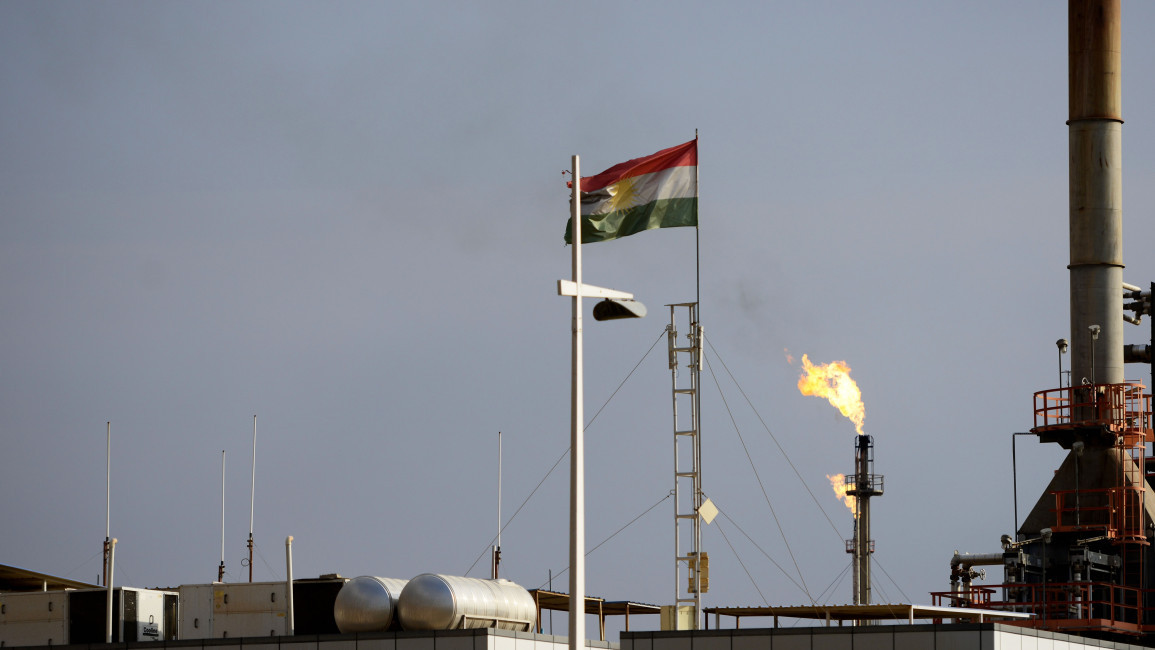Iraqi Kurdistan region's oil exports to resume to Turkey this week: Iraqi PM
Iraqi Prime Minister Mohammed Shia' al-Sudani said on Tuesday that northern oil exports from the Kurdistan region to the Turkish port of Ceyhan are expected to resume this week.
Ankara had stopped handling 450,000 bpd of exports from Iraq's north on March 25 after an international tribunal ruled in a nine-year-old dispute that Baghdad was right to insist on overseeing all Iraqi oil exports.
The tribunal run by the International Chamber of Commerce (ICC) ordered Turkey to pay Baghdad damages of US$1.5 billion for allowing the Kurdistan Regional Government (KRG) to export oil between 2014 and 2018 without the Iraqi government's consent.
Iraq's federal government and the Kurdistan Regional Government (KRG) early this month signed an accord to allow Kurdish oil exports to resume through Turkey.
According to the deal, sales of Kurdistan crude will be managed by the Iraqi State Oil Marketing Organization (SOMO).
"Today or tomorrow, we will go to sign the agreements with SOMO and the oil companies to resume exports. It is possible within this week to resume oil exports," Sudani told Rudaw, a Kurdish outlet, during an interview with journalists in Baghdad.
On the other hand, Reuters reported that international oil companies have been invited to Erbil for a meeting with the KRG's prime minister Masrour Barzani on Tuesday morning.
Sarko Azad, a member of the Kurdistan Parliament's energy committee, told The New Arab that they have no information on when the oil exports might resume.
"The recent agreement between Baghdad and Erbil is not transparent; rather, it is personal. The KRG consists of three main parties, but the KRG PM Masrour Barzani - who is from the KDP- did not ask the PUK governmental team to attend the signing ceremony of the deal. The KDP did not disclose the agreement's items to our committee members or the PUK either," clarified Azad, who is a member of the ruling Patriotic Union of Kurdistan (PUK).
PUK's governmental team has been boycotting the KRG formal meetings for months due to disagreements on the distribution of oil resources with its rival, the ruling Kurdistan Democratic Party (KDP).
"When they (the Kurdish ruling parties) wanted to export oil independently from Baghdad in 2014, they sought authorisation from the Kurdistan parliament," Azad added. "But now, when the KDP agreed that SOMO to sell the Kurdish oil, they did not even consult our committee or the parliament in general."
#Iraq: Restart of Kurdish Oil Flows Waits on Iraq Agreement With #Turkey
— Giovanni Staunovo🛢 (@staunovo) April 19, 2023
Baghdad needs to resolve financial claims against Ankara
Dispute’s part of Iraq attempt to control Kurdish oil exports#ootthttps://t.co/7fM2iOddIQ
The delay in restarting oil exports is related to settling payment issues by Turkey to Iraq.
Turkey attempted to hold in-person negotiations with Baghdad regarding the US$1.5 billion it was ordered to pay Iraq in damages in the arbitration case, according to Reuters.
Iraq expert Bilal Wahab told Al-Monitor early this week told Al-Monitor that Turkey is not yet ready to resume oil exports from northern Iraq "to gain leverage" and guarantee "pledges from Baghdad that it will not seek further compensations."
If the oil exports do not resume soon, Turkey may refuse to allow the oil flow from its Ceyhan port.
Several Kurdish commentators speculate that the KDP and the KRG might pay US$1.5 billion for Turkey just to convince Turkey to permit the oil flow through SOMO since the KRG's losses from the halt in its oil exports are estimated to be more than US$500 million within the last three weeks.



